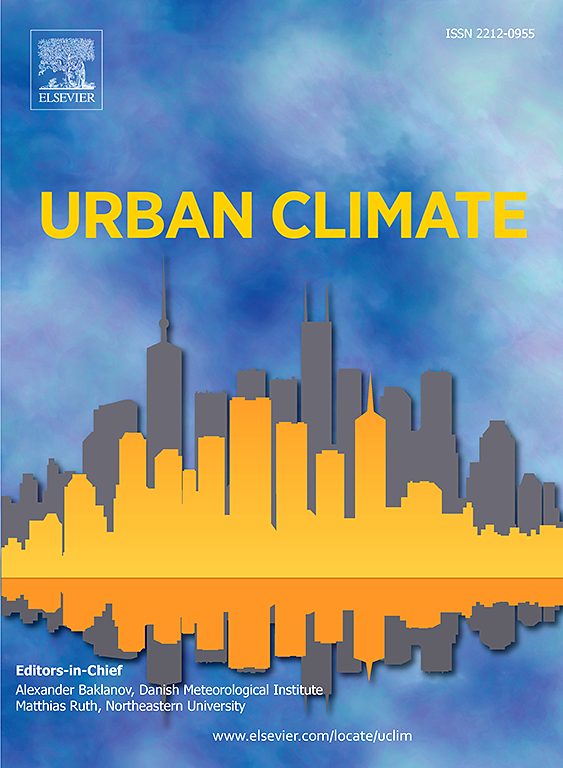寻求碳减排、污染控制、绿色扩张与中国城市经济增长:可再生能源政策作用的关注
IF 6.9
2区 工程技术
Q1 ENVIRONMENTAL SCIENCES
引用次数: 0
摘要
面对经济放缓和气候变化的双重挑战,中国提出了“碳减排、污染治理、绿色扩张、经济增长”战略。在实现这一目标的过程中,人们对可再生能源的发展寄予了厚望。我们利用中国城市的数据评估了可再生能源政策关注(REPA)对CPGE的影响。我们开发了一个综合评估框架,考虑了两个关键方面-经济质量和活力,以及环境保证和结果,以计算CPGE。此外,我们通过文本分析方法量化了城市一级的REPA。然后,我们使用空间Durbin模型估计REPA对CPGE的影响。结果表明:(1)样本期内,CPGE和REPA均呈上升趋势。REPA不仅促进了当地的CPGE,而且对周边地区产生了积极的空间溢出效应。(ii)区域再造计划的环境影响推动了这一进展,而经济影响相对较弱。(iii) REPA的影响是分散的。随着CPGE的提高,REPA的积极作用减弱。其中,非资源型城市、产业结构先进城市、中小城市和能源依存度较低城市的影响更为明显。我们的研究强调经济和环境协同的重要性,以及环境保护计划在促进经济和环境协同方面的关键作用。研究结果为寻求实现包容性增长的经济体,特别是面临经济增长与环境治理之间权衡的发展中国家,提供了有价值的见解。本文章由计算机程序翻译,如有差异,请以英文原文为准。
Seeking carbon reduction, pollution control, green expansion, and economic growth in urban China: The role of renewable energy policy attention
Given the dual challenges of economic slowdown and climate change, China has put forward the strategy of “carbon reduction, pollution control, green expansion, and economic growth (CPGE)”. In the process of achieving this goal, great expectations are placed on the development of renewable energy. We evaluate the effect of renewable energy policy attention (REPA) on CPGE, using data from urban China. We develop a comprehensive evaluation framework that considers two key aspects—economic quality and vitality, and environmental assurance and outcomes, to calculate the CPGE. Moreover, we quantify city-level REPA through a text analysis approach. We then estimate the impact of REPA on CPGE using a spatial Durbin model. The results show that: (i) During the sample period, both CPGE and REPA exhibit an upward trend. REPA not only fosters local CPGE but also generates positive spatial spillovers to neighboring areas. (ii) The environmental effect of REPA fuels this progress, while the economic effect is comparatively weaker. (iii) The effects of REPA are dispersed. As CPGE improves, the positive effect of REPA diminishes. Moreover, the effects are more pronounced in non-resource-based cities, cities with an advanced industrial structure, small- and medium-sized cities, and cities with a low reliance on the energy industry. Our study emphasizes the importance of economic and environmental synergy and the crucial role of REPA in promoting it. The findings provide valuable insights for economies seeking to achieve inclusive growth, particularly for developing countries that face trade-offs between economic growth and environmental governance.
求助全文
通过发布文献求助,成功后即可免费获取论文全文。
去求助
来源期刊

Urban Climate
Social Sciences-Urban Studies
CiteScore
9.70
自引率
9.40%
发文量
286
期刊介绍:
Urban Climate serves the scientific and decision making communities with the publication of research on theory, science and applications relevant to understanding urban climatic conditions and change in relation to their geography and to demographic, socioeconomic, institutional, technological and environmental dynamics and global change. Targeted towards both disciplinary and interdisciplinary audiences, this journal publishes original research papers, comprehensive review articles, book reviews, and short communications on topics including, but not limited to, the following:
Urban meteorology and climate[...]
Urban environmental pollution[...]
Adaptation to global change[...]
Urban economic and social issues[...]
Research Approaches[...]
 求助内容:
求助内容: 应助结果提醒方式:
应助结果提醒方式:


